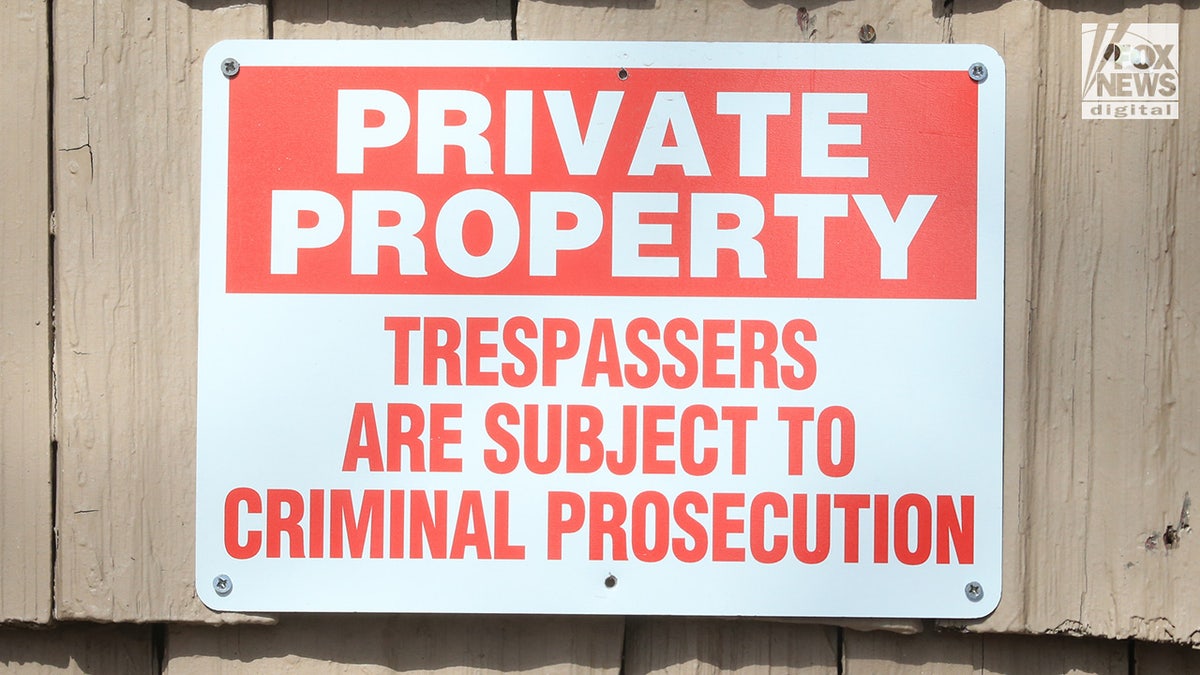What is it: Squatting, a national phenomenon
Daniel Phillips, who specializes in landlord and tenant disputes, said squatting legal battles are prompting long and costly legal battles for tenants.
You may have heard of "squatting," a strange phenomenon that's plaguing American cities and frustrating landlords and homeowners across the country.
Daniel Phillips, a real estate litigation partner at Belkin, Burden and Goldman law firm, who specializes in landlord and tenant disputes, spoke with Fox News Digital about the reasons behind squatting and the legal implications for those facing the issue.
Phillips described squatting as the unlawful possession of premises, which is seen in two primary situations. The first is in a foreclosure instance where people discover an abandoned property, especially if they know that an owner or a landlord has abandoned it, and they come in and take possession. The second way is through fraud, where people take on another person's identity to fraudulently lease out an apartment or a home. Oftentimes, they pay the security deposit and first month's rent before they completely stop paying, and the landlord is then stuck with someone in possession of their property who signed a lease agreement using a fake identity.
"I've seen squatting under the two scenarios that I've described," Phillips told Fox News Digital. "Under the foreclosure proceedings, you have people who are actually professionals at finding these foreclosed upon homes and taking over, gutting them, living there and then trying to extort the situation when the landlord or the bank is trying to have them removed. They drag out the process because they're very familiar with it, it's usually not their first time."
"Then the other scenario that I've seen is, whether it's a small landlord or a big landlord, people are entering into these fraudulent lease agreements with other people's names, and the landlord will start a case against them, and you'll get a phone call from the real person from another state saying, 'That's not me, I see a judgment on my record. I see that I'm being sued, and that's not me,'" he explained. "By the time the landlord has figured it out, it's really too late, because there's a lease agreement and now they have to go through the court process, which can be very long, time-consuming and expensive."

An exterior view of the home of Joseph and Susana Landa in Douglaston, New York, where individual Brett Flores has been squatting. (Probe-Media for Fox News Digital )
Phillips said the typical cost and length of these procedures varies from state to state. In some states like New York, it can take several months or even years, and cost anywhere between $10,000 and $75,000 to remove someone from the premises if they're squatting or there under false pretenses.
"It's a very lengthy process," he said. "It's definitely a burden on small landlords who're trying to collect rent or pay their mortgage and now you have someone living there that's not paying you and you have to go through the court process, which is time-consuming and you have to hire an attorney typically to get the person out."
Phillips explained that squatting has been around for a long time, but that there has been an increase in the phenomenon in recent years due to an uptick in foreclosures, which leads to more abandoned properties.
"When a property gets foreclosed upon and the bank takes it back, the bank is usually an absentee owner, and they're not looking over the property," he said. "Then, it becomes a very easy target for someone to come in and take it."
PHILLY HOMEOWNER PAYS SQUATTERS TO LEAVE AFTER POLICE COULDN'T HELP. WATCH:
He also pointed to the housing shortage, which was already a problem and has only been compounded by a "huge influx of people coming into the country with really nowhere to go."
"Although they're giving temporary housing, it's not a permanent solution, so people are really looking for somewhere that they can possibly stay long term," he said.
Besides the "economic position of the nation overall, which is leading to an influx of this," Phillips called on legislatures to get involved on a state-by-state basis to change laws to make it easier to remove squatters, because even though they're supposed to move quickly, in his experience, the litigation often "gets dragged out" for much longer than it should.
The third reason he believes there has been an increase in squatting is crime, especially in situations where people are entering into lease agreements as a fraudulent person or use a fake identity. Phillips explained that the properties are then used for personal reasons, commercial ones like a webcam facility or a call center, or even illegal activity like drugs or prostitution.
Unfortunately, Phillips explained, squatting isn't necessarily illegal and is most commonly considered a "civil matter."
"Typically when a landlord or an owner calls and says, ‘I have someone living in my home and I would like to get them out,' usually the police, they don't want to get involved," he explained. "They usually say this is a civil matter, go to housing for it, go to landlord tenant court and the courts will figure this out. Unless it's a clear-cut case of someone breaking into a home, and they're caught red-handed in the moment, the police usually don't want to get involved."

Phillips said the best way to protect yourself from squatters is vigilance over your property, such as through electronic surveillance or extra personal attention. (Probe-Media for Fox News Digital )
Phillips also explained that squatters are "very clever" about how they take possession by looking for vacant properties in the news that are involved in foreclosure proceedings. Sometimes, he said, squatters will simply monitor a neighborhood and look for specific types of homes that they think they can gain access to.
"I've seen scenarios where people break into the basement window, and then they repair it, and they take over the whole property and then start telling people that they are an owner or even just a tenant," he said. "So they're very clever, they're very savvy, and you really have to be careful in these situations."
Phillips said the best way to protect yourself from squatters is vigilance, which includes making sure a property is either surveilled by video, has a property manager, or has someone who's just checking up on the property occasionally to make sure it's secure. To make sure a potential tenant isn't attempting fraud, he said it's important to do everything possible to background check a prospective tenant. But, if all else fails, he said police are still the first line of defense if a property is being squatted on.

Signage indicating private property displayed outside a property. (Probe-Media for Fox News Digital )
CARETAKER-TURNED-SQUATTER BLOCKS FAMILY FROM $2 MILLION DREAM HOME WITH ALLEGED LOOPHOLES
"Sometimes they will get involved and sometimes they will remove the person," he said. "If you're lucky enough to have that happen, you've avoided court proceedings, thousands of dollars in attorneys fees, potentially lost rents and damage to your property."
"If that doesn't work, you should immediately start the process of trying to get the person removed legally," he added. "Typically, self-help in these situations is high risk, high reward, so definitely start the proceedings to try to get the person out through an eviction proceeding. You should also do anything you possibly can to secure other areas of the premises where the person probably hasn't taken over to really ensure that they're not taking complete control over a property and destroying the property."
Unfortunately, unless something changes, Phillips predicts the squatting problem will only get worse. The problems squatters pose can be severe, from property damage and waste, to gumming up the legal process trying to oust them, to criminal activity and violence.
CLICK HERE TO GET THE FOX NEWS APP
"I don't see anything changing, whether it's from a legislative point of view or from an economic point of view, where the need for housing is going to drop or the criminality of it is going to change," he said. "I think given all the circumstances that are going on in the nation today, whether it's the migration, whether it's the increase in foreclosures, I don't see that this is going away in the foreseeable future."











































